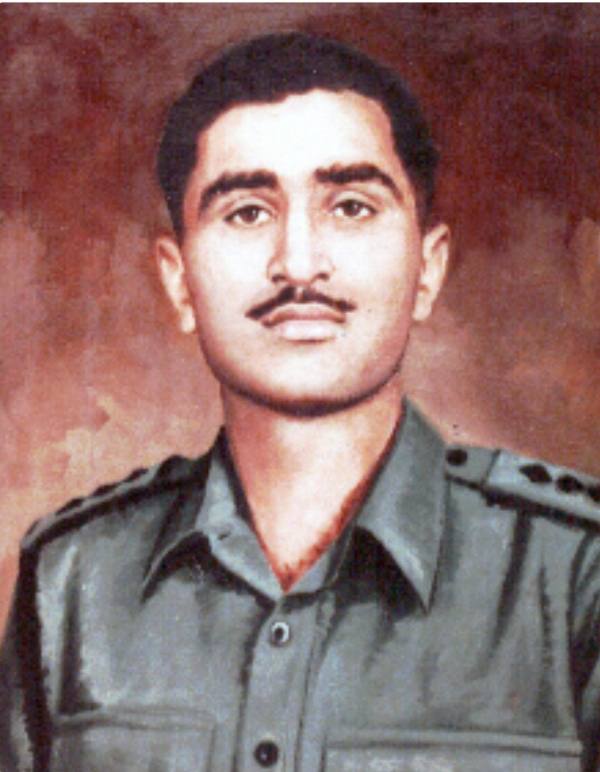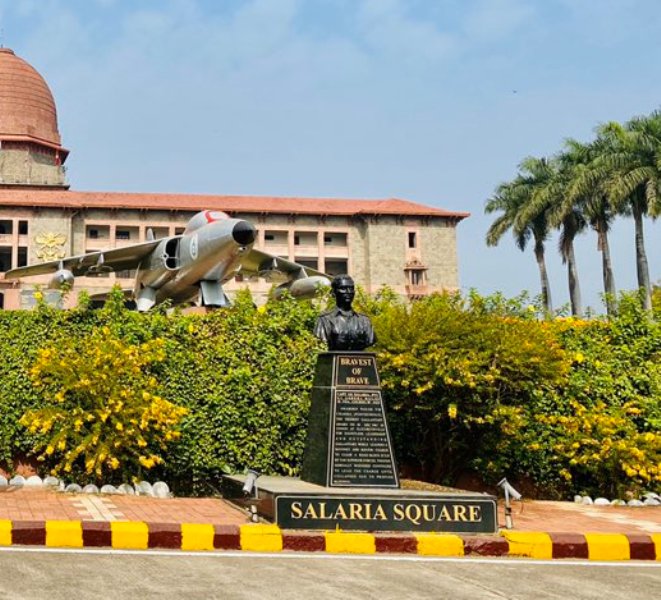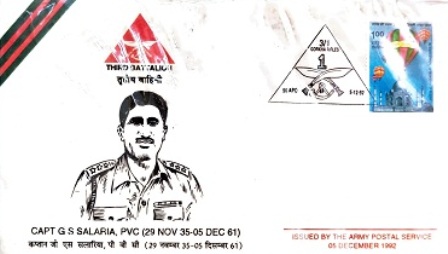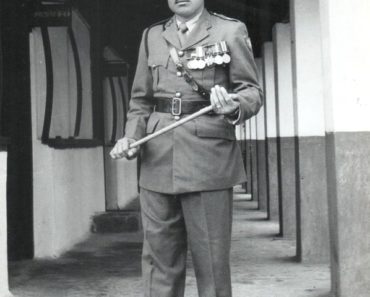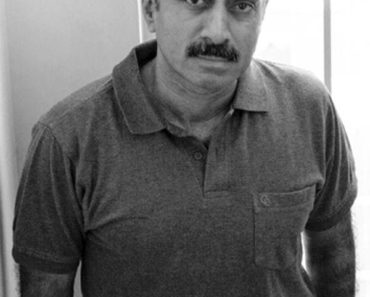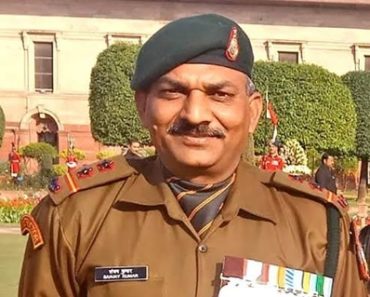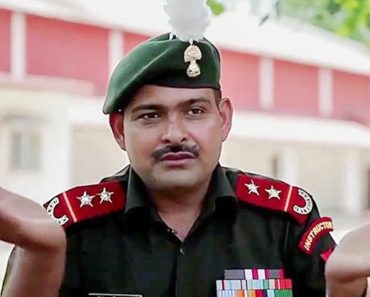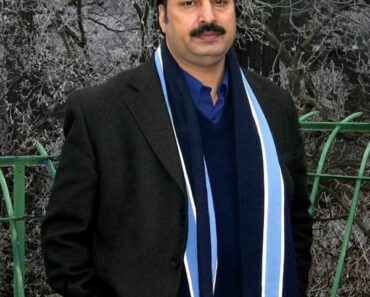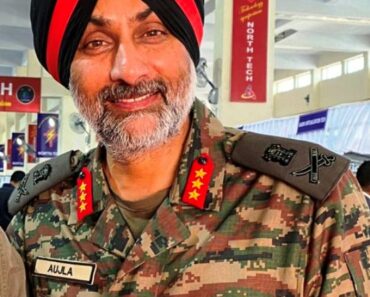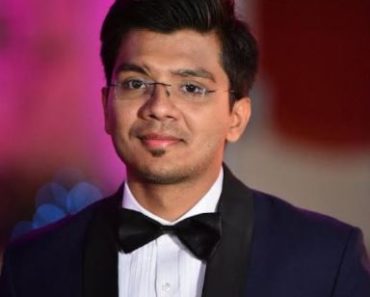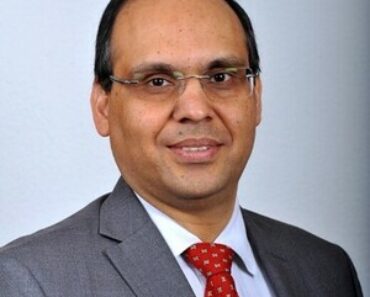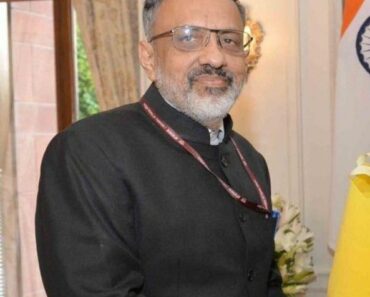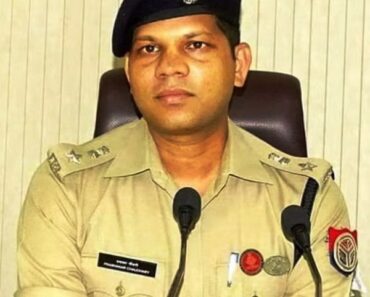Captain Gurbachan Singh Salaria was an officer of the Indian Army who was awarded India’s highest gallantry medal, Param Vir Chakra (PVC), for his role in a UN operation in 1961, while taking on a heavily armed group of secessionists in the Democratic Republic of Congo and preventing a rebel lead assault on the UN’s Headquarters during which he succumbed to his injuries, making him the only soldier of the Indian Army to be presented with a PVC for partaking in the operations under the United Nations.
Contents
Wiki/Biography
Captain Gurbachan Singh Salaria was born on Friday, 29 November 1935 (age 26 years; at the time of death) in the Janwal village, Shakargarhi, Punjab (now in Pakistan). [1]Government of Punjab After the partition of India in 1947, the young Gurbachan came to the Indian side of Punjab along with his entire family and got settled at Gurdaspur district of Punjab Punjab, where he was enrolled in a government school. [2]Param Vir: Our Heroes in Battle by Major General Ian Cardozo He didn’t pay much attention to his studies and would spend most of the time playing sports such as Kabaddi. He belonged to a family with military history, so he was inclined towards joining the army since the early ages of his childhood. Later, he tried to get himself enrolled at King George’s Royal Indian Military College (KGRIMC), Bangalore but was rejected as he couldn’t qualify the required physical standards of the institute. After some time, he again applied for KGRIMC, and this time, he was accepted. Later, he was transferred from Bangalore to King George’s Royal Indian Military College, Jalandhar. After completing his schooling in 1953, Gurbachan Singh Salaria joined the Joint Services National Defence Academy following which he joined the Indian Military Academy in 1956. [3]Param Vir: Our Heroes in Battle by Major General Ian Cardozo
Family & Caste
Captain Gurbachan Singh Salaria belonged to a Punjabi Saini Sikh family. [4]The Tribune
Parents & Siblings
His father’s name was Chaudhari Munshi Ram Salaria, who was also in the army. He was a part of the Dogra Squadron of the Hodson’s Horse, a part of the British Indian Army’s cavalry. [5]Param Vir: Our Heroes in Battle by Major General Ian Cardozo His mother’s name was Dhan Devi. [6]The Brave: Param Vir Chakra Stories by Rachna Bisht Rawat His younger brother Sukhdev Singh Salaria lives in Pathankot. [7]The New Indian Express
Punjab: Army Chief, General Bipin Rawat met with relatives of Param Vir Chakra awardee, Late Captain Gurbachan Singh Salaria, in Pathankot today. Captain Salaria was awarded PVC for his exceptional bravery during his deployment in Congo as part of UN Peacekeeping force in 1961. pic.twitter.com/F5Uw925Bk8
— ANI (@ANI) September 6, 2019
Career
Commissioning as an officer among the brave Gurkhas
After the completion of his intense training period, he passed out of the Indian Military Academy on 9 June 1957 at a very young age of 22 years. He was initially commissioned in the 2nd Battalion of the 3rd Gorkha Rifles after which he was transferred to the 3rd Battalion of the 1st Gorkha Rifles in March 1960. [8]Param Vir: Our Heroes in Battle by Major General Ian Cardozo
A backdrop of the events that unfolded into utter chaos in Congo
Prior to June of 1960, Congo was under the colonial rule of Belgium. In 1960, Belgium decided to end its colonial rule in Congo and give independence to the Democratic Republic of Congo so that it could be governed by its own people; however, things didn’t go as planned, and soon, there was a mutiny in the Congolese Army over the discrepancy between the whites and the blacks in the country as a result of which Katanga and South Kasai, the two parts of the country, started violently demanding a separation from the mainland. Things slowly took a violent turn, and the newly independent country dwelled into the darkness of civil war. After trying numerous times, Congo and Katanga could not come down to a joint or collaborative consensus to sort out their differences. Finally, on 14 July 1960, the Government of Congo decided to go to the UN to ask for their intervention in the situation. [9]Param Vir: Our Heroes in Battle by Major General Ian Cardozo
Involvement of the United Nations in Congo
The UN responded to the crisis by immediately establishing a multi-national force under the flagship of the United Nations Operations in Congo under which India contributed with about 3000 men by moving the 99th Infantry Brigade to the aid of the UN, which also comprised the 3rd Battalion of the 1st Gorkhas, in March 1961. The UN failed to peacefully resolve the situation in Congo and adopted the United Nations Security Council Resolution number 169. [10]Peace Operations and Intrastate Conflict: The Sword Or the Olive Branch? by Thomas R Mockaitis [11]Honourpoint Under this resolution, the United Nations condemned the secessionist move of Katanga and authorized the use of armed force. [12]UNSC Resolution 169
Captain Salaria led his Gurkhas from the front
Captain Salaria and his men of 3/1 Gorkha Rifles were ordered to march and deploy at the strategically important Elizabethville Airfield in Katanga and also to protect the United Nations headquarters present there. The rebels, known as Gendarmes, wanted to establish a roadblock around and near the airfield. The Indian contingent was tasked to clear out the enemy’s blockades so that the UN’s operations can continue to take place in Congo unhindered with the help of the airfield. Heavily outnumbered by the enemy, Captain Salaria decided to lead the charge. The rebels had two armoured cars for their help and are believed that they were not expecting any sort of attack on them due to their greater numbers. Captain Salaria and his Gurkhas slowly and quietly crawled to a distance, which was suitable enough for the rocket launcher to take out the enemy’s armoured vehicles. As soon as the rocket destroyed the armoured vehicles, Captain Salaria led the charge to clear out the roadblock. [13]The Better India
Awards – Param Vir Chakra
Captain Salaria was posthumously awarded the Param Vir Chakra (PVC) for showcasing raw courage in the face of overwhelming odds and taking on an enemy far bigger than self while completely disregarding his personal safety. [14]Ministry of Defence The award was recieved by his father, Munshi Ram Salaria, on 26 January 1962.
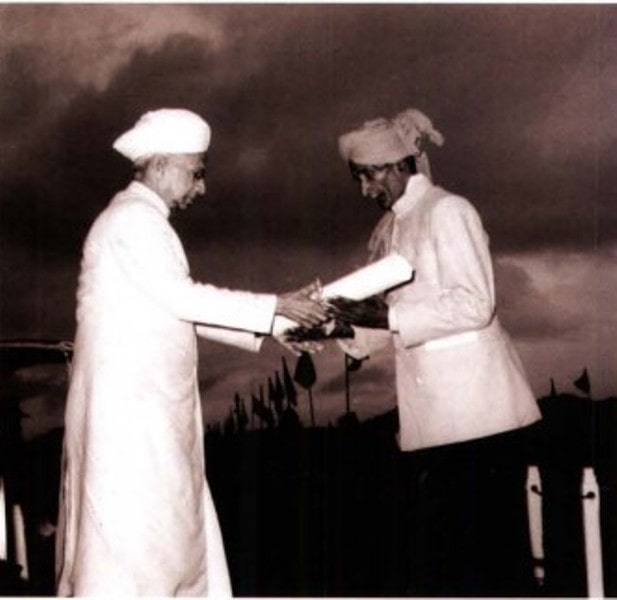
Munshi Ram Salaria, father of Captain Gurbachan Singh Salaria, receiving the Param Vir Chakra (posthumously) on behalf of his son
Honours
- A square in the National Defence Academy has been named Salaria Square to honour the brave officer.
- On 5 December 1992, the Army Postal Service Corps issued a special postage stamp in honour of Captain Gurbachan Singh Salaria.
- The 14 Gurkha Training Center at Sabathu, Himachal Pradesh has a stadium named after him.
- In 1984, the Ship Corporation of India (SCI) named one of its oil takers as Captain Gurbachan Singh Salaria, PVC.
Death
Armed with just a Khukri, A brave soldier till the end
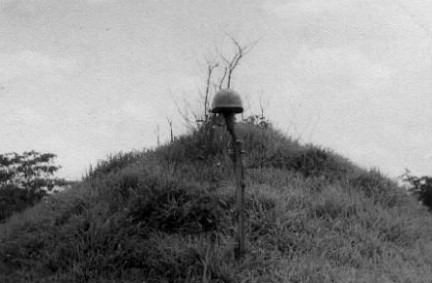
The inverted rifle and the helmet on the top mark the place where Captain Gurbachan Singh Salaria laid down his life in Congo
During the UN operations in Congo, as soon as Captain Salaria’s men destroyed the two armoured vehicles of the Katangese rebels, Captain Salaria decided to lead the charge with his regiment’s war cry “Jai Maa Kali, Aayo Gorkhali” which means “Hail Goddess Kali, Here Comes The Gorkhali.” Captain Salaria wanted to take on the confused enemy before they could re-organize themselves and counterattack on the Indians. His last message on the radio to another officer was “I am going ahead with the attack as I am certain that I will be victorious”. [15]Sainik Samachar – Volume 41 The soldiers on the order of their commander engaged the enemy with their unsheathed Khukris and inflicted heavy damage upon the rebels. In the state of confusion and the course of the battle, Captain Salaria was hit by an enemy’s automatic rifle’s burst fire in the neck. Refusing to back down and get evacuated, he continued to attack the enemy till the enemy lost almost half of its strength and decided to run away leaving their dead and the wounded behind. Captain Salaria later succumbed to his wounds on his way to the hospital for treatment. [16]Param Vir: Our Heroes in Battle by Major General Ian Cardozo [17]Sainik Samachar – Volume 41
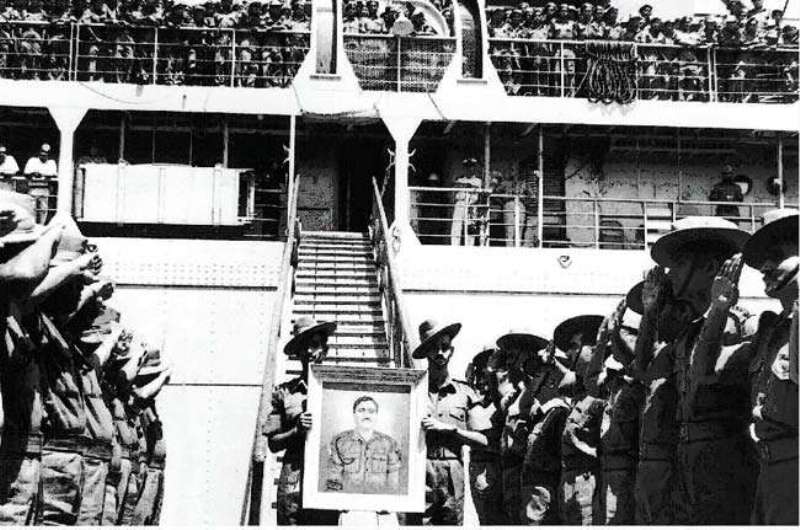
Soldiers of the 3/1 Gorkha Rifles carry the portrait of Captain Gurbachan Singh Salaria as they return from their peacekeeping mission in Congo
Facts/Trivia
- Captain Gurbachan Singh Salaria is the first alumnus of the National Defence Academy to receive the Param Vir Chakra (PVC). [18]The Times of India
- He was nicknamed “Khan Saheb” by his Commanding Officer due to his cropped haircut and an upturned moustache. [19]The Better India
- Once in Shimla, before being deployed to Congo, he showed his hand to a palmist who said that he will bring great fame to his name. [20]The New Indian Express
- Among all his siblings, Gurbachan Singh Salaria was the favourite of his grandmother who would often tie a black thread around his waist to keep him safe from evil. [21]The New Indian Express
- While studying at King George’s Royal Indian Military College, Gurbachan Singh challenged his bully to a boxing match, and after defeating the bully, the bully had to apologize to him. [22]The New Indian Express
- Captain Gurbachan Singh Salaria was up against 150 Katangese rebels out of which Captain Salaria and his men managed to kill 40. Thus, sending the rebels into a sense of disarray. [23]Stories of Heroism: PVC & MVC Winners by BC Chakravorty
- In her book, The Brave-The Param Vir Chakra Stories, Rachna Bisht Rawat wrote,
Two bullets had pierced his neck. The blood was seeping down and soaking his shirt. Right ahead he could see the gendarmerie running away. Some of his brave and gutsy Gorkhas were still giving chase. He did not resist when an immense weariness enveloped him. He had lost too much blood. His task had been achieved and he was at peace. Closing his eyes, Captain Gurbachan Singh Salaria of 3/1 Gorkha Rifles, dropped his rifle and fell, drifting into unconsciousness from which he would never awaken”.
- In an interview, Major General RP Singh, Captain Gurbachan Singh Salaria’s battalion Adjutant, fondly recalled Gurbachan showing him his right hand for some astrology thing. RP Singh said,
Wait and see, this star will take me to great heights’. ‘I did not know that his day of reckoning and attaining fame was just a few days away. Or that he would never know of this fame since it would come when he was in his heavenly abode.”
References

